- Home
- Nora Roberts
Moon Shadows Page 28
Moon Shadows Read online
Page 28
Jack watched the scene form: the same girl tumbling from the broken carriage, pinwheeling down onto the rocks. She lay on her side, eyes closed and her hair fanning out like flames beneath the brim of her worn bonnet.
“And,” Rowan went on, “she will be killed instantly.”
He glared. “Are you saying that her fate is in my hands? What guilt you lay upon me!”
“I will repeat your own words back to you,” Rowan said. “ ‘We all have choices to make.’ ”
Jack wrestled with his conscience. In the end, he had to know: “And if I choose to come to her aid? What is her fortune, then?”
Lady Rowan vanished the globe with a gesture. “That is not for you to know, for once you choose to interfere, your fate is tied to hers.”
She winked, kissed Jack’s cheek and whirled away in her iridescent silks. A moment later she was just a spangle of bright sparks soaring far above the dancers.
He stood frowning after her. Could he trust that what she’d shown him was real? True, she had befriended him since his arrival, and his current situation would be far worse if she hadn’t championed him.
Still, she was a faerie. Mischief and meddling were born and bred in her.
This could be another elaborate jest, with myself as the butt of it.
Yet, what if what she’d shown him was true? He pictured the girl with the lustrous red hair as he’d seen her in the magic globe and felt a sudden pang.
At least I am still human enough to pity her.
That surprised him. He couldn’t remember the last time he’d felt any emotions other than boredom or anger. How long had it been since he’d left the shelter of the castle to venture out in the mundane world that had once been his home? Time had no meaning here and days ran into weeks all too easily . . .
But sometimes going back was too painful: it made him realize all he had lost through his youthful recklessness.
Still, the fading memory of the moors by starshine, of rich earth warming beneath the pale spring sun, tempted him.
Striding to the back of the gallery, Jack unlatched the latticed window. Jewels imbedded in the glass winked with colored lights as he threw it wide.
A powerful wind blew in, tugging at his thick hair and bringing tantalizing scents of wet earth, of tender seedlings ready to spring out of the dark, fertile ground and into new green life.
There was nothing in all Faerieland to compare with it. A fierce longing for the mortal world swept through him, far more violent than the windstorm that roared down over hill and vale.
Waves of emotion battered at him, and Jack fisted his hands. He felt in that moment that he would do anything to break the spell binding him to the Kingdom of Faerie. Anything to regain his freedom.
And so he made his choice.
Jack drew on the one power granted him. For a single second the air in the gallery burned bright blue. Then a flickering, gold flame launched itself out the window, riding the storm down to the dark valley floor.
Chapter 2
THE coachman waited uneasily for Phoebe’s instructions. “Which way do ye ken I should turn, miss?”
Phoebe hesitated.
As she stared into the gloom, the captive moon suddenly broke free and sailed out from behind the clouds. Phoebe gasped as the countryside was revealed. A great open expanse of land rose up, all ebony and silver. Plunging ravines cut through it and stacks of weathered rock loomed ominously in the frosted moonlight.
Movement caught her eye. A light! Relief flooded her.
“Turn west,” she ordered the coachman.
He responded to the authority in her voice. The weary team of horses started forward with new enthusiasm, and off they went, following the light. It darted into a stand of trees, winking in and out among the dark trunks.
Phoebe wondered what dire errand had drawn the light-bearer out on foot on such a night and at such a late hour.
But the coachman muttered to himself. “Pixie-led, we are. Likely we’ll end up in a bog, or back where we started!” But having his instructions, he kept on.
Then, without warning, the light vanished as if the lantern had been blown out.
“Keep going,” Phoebe ordered. “There must be a lodging close to hand.”
Her faith was rewarded. They came upon a high stone wall smothered beneath a tangle of vines. The wrought iron gates stood wide—rusted open, she thought, and recognized the crest upon them.
Thorne Court, at last!
They passed inside the wall to a rutted gravel drive. The hedge on either side was overgrown, the verge thick with tall brambles that clawed and scraped the carriage doors. Phoebe was shocked at the neglect. A sense of foreboding came over her. If the grounds were so ill-kempt, what must the house itself be like?
At last the vehicle entered a cobbled court, and Phoebe leaned forward, anxious for the first glimpse of her new home. Thorne Court was revealed in all its Gothic splendor.
Three stories of carved stone rose up around a central courtyard, the towers and bays and massive chimneys all black with moss and the ravages of centuries. Gargoyles with outstretched wings perched on the eaves, as if ready to take flight. Phoebe fought an urgent desire to order the coachman to turn back.
Common sense came to the rescue. It was impossible, of course. The coachman was half-frozen, the horses were spent. And, had there been any other choice, she would never have come to Thorne Court in the first place.
She quelled her burst of panic. For better or worse I must put the past behind me and go through with it. This is the start of my new life.
The carriage rolled up to the massive front door and a groom shuffled toward the horse’s heads. As she dismounted with her bandboxes over her arms, the front door opened, spilling wan light into the courtyard. A silver-haired butler ushered her into the wide hall and took her cloak. The room was shadowed, but Phoebe had a quick impression of fine woodwork in need of a good cleaning, faded tapestries and a great deal of old dusty armor.
“Welcome to Thorne Court, Miss Sutton. I am Holloway.”
“Thank you, Holloway. I’m sorry to have kept you from your bed.”
“Not at all, miss. We expected that the inclement weather would delay your arrival. There is a cozy fire kept burning in the book room.”
He led her across the hall and opened the door. The room was dim except for the cheerful flames blazing in the hearth and a branch of candles on a side table. It smelled of ink and leather book bindings with a faint overlay of beeswax and the pungent green scent of turpentine.
“Please to warm yourself by the fire, Miss Sutton, while the footmen carry your trunks upstairs. I’ve rung for refreshments. No doubt you would like some hot tea,” Holloway said.
She flushed with embarrassment. “Thank you. I only have the one and my two bandboxes, which I left in the hall.” She had kept with her the third, which was packed with her dearest possessions.
“Very good, Miss Sutton. Your belongings will be unpacked and put away by the time you’ve finished your tray.”
He went out, shutting the door behind him. Phoebe held her chilled hands to the heat of the fire and examined her surroundings. Thorne Court seemed to be a well-run household, although the book room, like the hall, seemed in want of a good cleaning. There was a dullness to everything, as if covered with a fine haze of neglect. Well, I shall see that it’s soon set to rights!
The furnishings were masculine and of the best quality, with comfortable leather chairs and a wide desk by the window. Ancient maps were displayed in glass cases along one wall and the rest were filled with books.
Phoebe lifted her head to look up at the gold-framed painting over the fireplace and her heart turned over. She knew the man in the portrait: Gordon Tremaine, Lord Thornwood’s nephew.
The artist had rendered him just as Phoebe remembered from their last meeting. The thick dark hair, high cheekbones and strong jaw. Those intensely blue eyes that burned with inner light. He had also captured a keen intelligen
ce in that sapphire gaze, and both humor and sensuality in the firm mouth.
Phoebe wrenched her gaze away. The painting conjured all the feelings she’d thought dead and buried. The thrill and anxiety of first love, the confusion and disbelief of loss and the sharp pain of betrayal.
She’d been ten the first time she’d set eyes on Gordon. He was two years her senior and carelessly kind to a young and lonely girl. She called him “Cousin Gordon,” trying to lay claim to such a highly superior (if slightly arrogant) being, who had dropped from some other marvelous world into hers.
He’d helped her sail leaves on the duck pond behind the village green and whittled a whistle for her. He’d even let her play Maid Marian to his bold Robin Hood, although he’d relegated her part to sitting in a leafy willow bower pretending to sew tunics, while he leapt about with a wooden sword, slaying rushes in lieu of the sheriff of Nottingham’s men.
She’d taken exception to that, and run off with his sword, tripping and accidentally breaking it. Gordon had threatened to thrash her; but instead he’d dried her tears with the hem of his fine linen shirt, then mended his sword and made her one of her very own out of scraps, wheedled from the handyman.
From that moment he’d become her hero.
After that first visit Lord Thornwood came down to Wickersham, one of his many estates, for the summer months with his nephew in tow. While her father, His Lordship’s cousin, and Lord Thornwood discussed their common interests in antiquities and folklore, Phoebe and Gordon had roamed the countryside together on foot and horseback, laughing and quarreling as children do.
She’d endowed him with every princely virtue, and as she grew to young womanhood, so did her fondness for him, until no other young man of her acquaintance measured up. Slowly, inevitably, that friendship ripened into love, and she’d accepted his proposal in a delirium of happiness.
Of course, Lord Thornwood and her father had thought them much too young to settle down. The plan was for Gordon to spend a year managing his uncle’s estates in India and see something of the world.
“If you both still feel the same when young Tremaine returns,” her father had told them, “I will not withhold my consent.”
“When I return,” Gordon pledged, “I shall come straight to Willow Cottage and ask you again, sir, for your daughter’s hand in marriage.”
He’d kissed Phoebe good-bye and given her a necklace with an enameled rose and vowed when he returned to England he would exchange it for a wedding ring. Gordon had smiled and ridden away, taking her heart with him.
And that was the last time she saw him.
The pain of his betrayal came back, fresh and raw. The anxiety of not hearing from him, followed by the humiliation of his letter, saying that he would not be returning to England and releasing her from her promise.
Her stomach knotted as she relived it all. Gordon had stayed in India, Lord Thornwood had come down to shut up Wickersham and retired to his principal estate in Cornwall. Neither she nor her father had ever mentioned them again.
The door opened and Holloway held it wide to admit a sleepy maid with a serving tray. “Your refreshments, Miss Sutton. No, no, Dorcas, put it on the table by the fire.”
The woman set the tray down, bobbed a curtsy and left.
The butler had caught Phoebe eyeing the painting. “That was made of Master Gordon Tremaine when he was just turned twenty—or rather I should say, Lord Thornwood, as he is now.”
Phoebe was stunned. She wondered if she’d misunderstood. “I beg your pardon?”
“Master Gordon was the late viscount’s heir. He ascended to his uncle’s dignities two weeks ago.”
Her thoughts were whirling. Gordon, master of Thorne Court? “I didn’t know,” she said, struggling for composure. “I’m very sorry to learn of Lord Thornwood’s passing.”
“He was carried off by a sudden illness,” Holloway said. “Fortunately, Master Gordon arrived in time to see him before the end.”
She felt the color drain from her cheeks. “Then he is here, at Thorne Court?”
“Yes, miss. He has made his home here since his accident several years ago.” The butler gave a discreet cough. “Will there be anything else, miss?”
She collected herself with difficulty. “No. No, thank you, Holloway.”
He withdrew, leaving Phoebe to sort out her disordered thoughts. Her gaze returned to Gordon’s portrait. So handsome. A young Prince Charming—and here I am, in the role of beggar maid.
She turned away and paced the room in agitation. This was her worst nightmare. To come face-to-face with Gordon after all that had gone between them! Unthinkable!
She stopped by a row of books, arrested by the titles. Her father had owned some of the same volumes, but she’d been forced to sell them all at auction. She reached for one. The Ballad of Thomas the Rhymer and Other North Country Tales.
Phoebe knew the story of how the queen of faeries had fallen in love with “True Thomas” and carried him off to the realm of faerie for seven years.
There was a soft click followed by a deep voice. “Perhaps you’d care to take a chair by the fire—if you are quite done examining my taste in literature?”
She whirled around, almost dropping the volume in her hands. A monstrous shadow loomed along the fireplace wall. Then she turned and saw a man framed in the open door to the terrace.
A tall figure limped forward into the radiant circle of candlelight, leaning heavily upon his cane. Gordon was dark, as she’d remembered, quite tall and broad of shoulder—but certainly no handsome prince.
In fact, he was the ugliest man she’d ever seen.
Chapter 3
“GORDON?”
Phoebe’s palms were damp and her heart raced. She searched in vain for the boy she’d known in the man before her.
“One and the same.”
As he moved closer she noticed more details. His features were terribly distorted, the right eyebrow pulled up at the end by the purple scars fanning over his cheek and temple. The firm, generous mouth was yanked brutally down at one corner, the aquiline nose awry as if it had been broken and badly reset.
Only the color of his eyes was unchanged, a shock of vivid blue against his wind-burned skin. Cold as winter’s heart and without any glimmer of welcome.
She couldn’t think of a word to say.
There were no signs of the Gordon she’d once known in the man before her.
He examined her from under lowering brows. “You are not at all what I expected.”
“I might say the same of you, my lord.”
His mouth twisted. “You would not be the first person to be shocked by my appearance—although most have the grace to pretend otherwise.”
She flushed to the roots of her hair. “You misunderstand me. I didn’t expect to see you here. I . . . I thought you’d remained in India all these years. And until Holloway told me, I had no idea that you were now Lord Thornwood.”
“I returned two weeks ago, shortly before my uncle passed away.” He frowned down at her. “It’s been many years since I last saw you at Willow Cottage.”
Heat rushed to her face. “I was thinking of the first time we met, when you were a boy of twelve and carved me a whistle from a willow tree.” It was, in fact, still somewhere in her little box of childhood souvenirs.
Some unreadable emotion flickered over his dark face. “That boy no longer exists.”
He turned so she could see twisted, purple scars on his other cheek. “I am what you see today.”
She was taken aback by the extent of his injuries. Dear God, what fearsome tragedy has befallen him?
Phoebe realized she was staring and gathered her wits. “I was very sorry to learn of your uncle’s passing. Naturally, I do not expect to hold you to his promises.”
“Don’t be foolish. I fully intend to honor his intentions.”
“But . . .” She started to speak but he forestalled her.
“Spare me your thanks,” he said curtly.
“When you know me better, Cousin, you will discover that I do nothing unless it serves my own interests.”
She eyed a cobweb and its magnified shadow wafting in the draft above the window curtains. “Perhaps you should interest yourself more in Thorne Court. This room is lovely, but in sad want of care.”
His brows shot up in surprise. “If you like, you may take that up with Mrs. Church, my housekeeper.”
“Housekeeper?” Phoebe frowned. “I came here with the understanding that I was to fill that position.”
He looked at her quizzically. “My dear Phoebe! Mrs. Church has no wish to retire—nor I to see her go.”
“B-but . . . your uncle hired me to run the house, yes, and sent my father’s bank a draft for an advance on my yearly salary.”
Phoebe removed a folded letter from her reticule and held it out to him. “If you look you will see that his postscript states, very clearly, that he has hired me to run his household.”
Gordon glanced at it and gave a sharp crack of laughter. “Good God! His abominable handwriting! You’ve made a bad job of interpreting it, my dear.”
Phoebe stiffened. “I am not your dear. It’s true that I had to guess at some passages. However his intent is quite clear.”
He gave the note back to her. “Correct me if I am wrong—and I feel quite sure that you will!—but I believe his words are that you might order the household as you see fit, with his very good wishes.”
After swiftly scanning the writing, Phoebe didn’t know what to say. Gordon was right. “But . . . I don’t understand. The bank draft . . .”
“Was an allowance, naturally. Your first quarter’s pin money. He invited you here as his kinswoman, not some sort of upper servant who must toil to earn her bread. When my uncle offered you a home at Thorne Court, it was to relieve you of such necessity.”
“I have no need of charity,” she replied stiffly. “At the time he wrote to me, I was companion-governess to . . .”

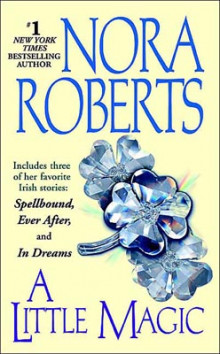 A Little Magic
A Little Magic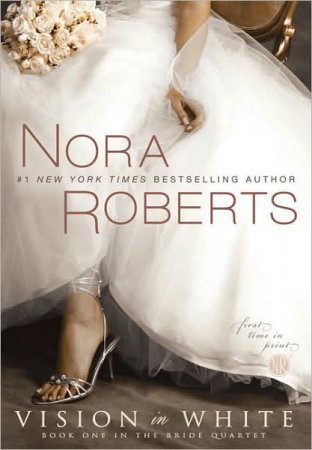 Vision in White
Vision in White True Betrayals
True Betrayals The Next Always
The Next Always A Man for Amanda
A Man for Amanda Born in Fire
Born in Fire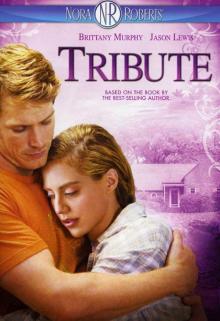 Tribute
Tribute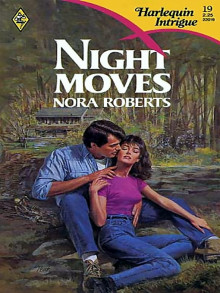 Night Moves
Night Moves Dance Upon the Air
Dance Upon the Air The Name of the Game
The Name of the Game Jewels of the Sun
Jewels of the Sun River's End
River's End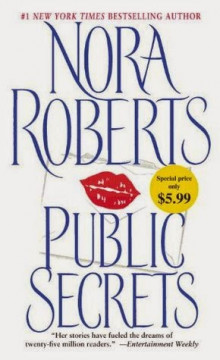 Public Secrets
Public Secrets Homeport
Homeport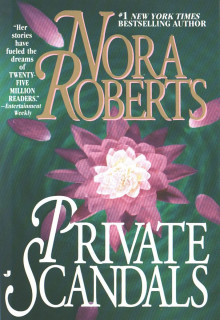 Private Scandals
Private Scandals The Witness
The Witness Blithe Images
Blithe Images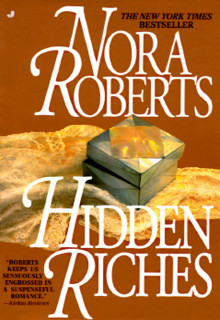 Hidden Riches
Hidden Riches Key of Light
Key of Light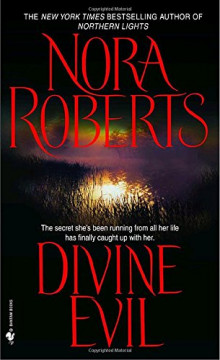 Divine Evil
Divine Evil High Noon
High Noon Blue Dahlia
Blue Dahlia Sea Swept
Sea Swept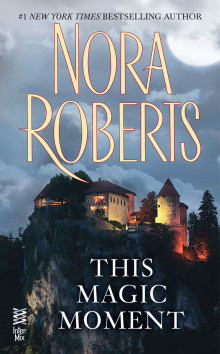 This Magic Moment
This Magic Moment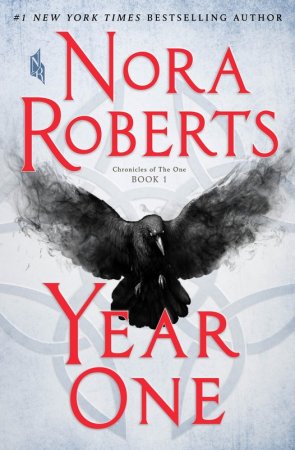 Year One
Year One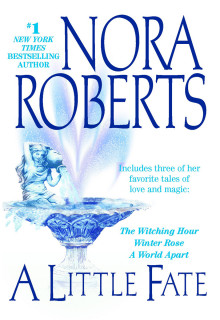 A Little Fate
A Little Fate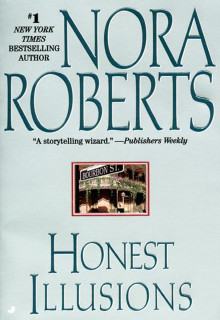 Honest Illusions
Honest Illusions The Reef
The Reef Shelter in Place
Shelter in Place The Hollow
The Hollow Holding the Dream
Holding the Dream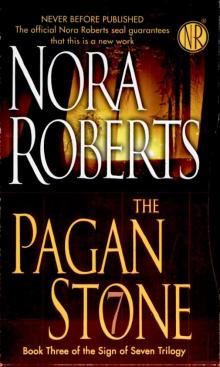 The Pagan Stone
The Pagan Stone Savour the Moment
Savour the Moment The Perfect Hope
The Perfect Hope Island of Glass
Island of Glass Happy Ever After
Happy Ever After Bed of Roses
Bed of Roses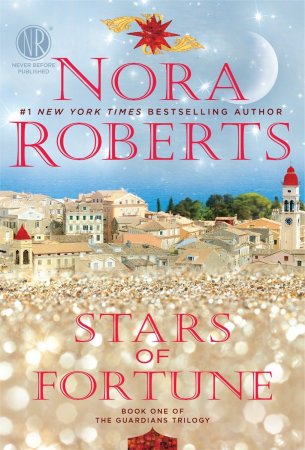 Stars of Fortune
Stars of Fortune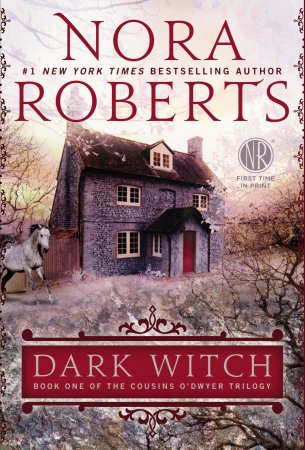 Dark Witch
Dark Witch The Return of Rafe MacKade
The Return of Rafe MacKade Chesapeake Blue
Chesapeake Blue The Perfect Neighbor
The Perfect Neighbor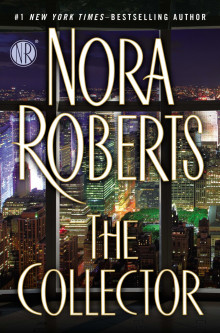 The Collector
The Collector Come Sundown
Come Sundown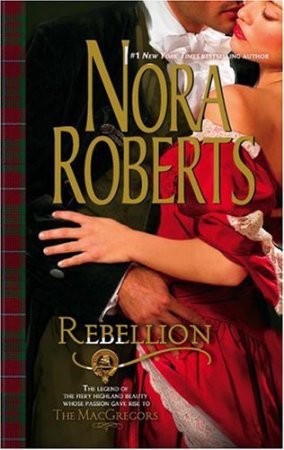 Rebellion
Rebellion Affaire Royale
Affaire Royale Daring to Dream
Daring to Dream Bay of Sighs
Bay of Sighs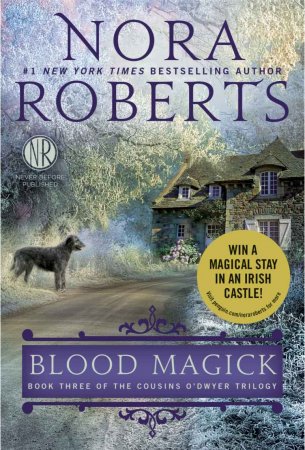 Blood Magick
Blood Magick Angels Fall
Angels Fall Captivated
Captivated The Last Boyfriend
The Last Boyfriend Irish Thoroughbred
Irish Thoroughbred Inner Harbor
Inner Harbor The Right Path
The Right Path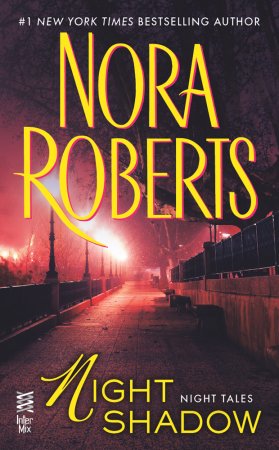 Night Shadow
Night Shadow The Heart of Devin MacKade
The Heart of Devin MacKade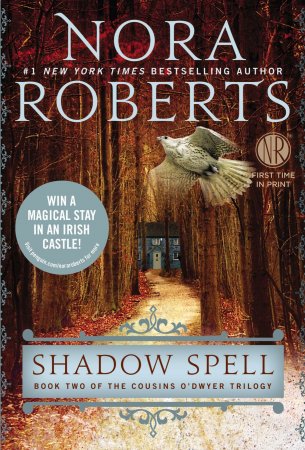 Shadow Spell
Shadow Spell The Playboy Prince
The Playboy Prince The Fall of Shane MacKade
The Fall of Shane MacKade Rising Tides
Rising Tides Command Performance
Command Performance Hidden Star
Hidden Star Cordina's Crown Jewel
Cordina's Crown Jewel The MacGregor Brides
The MacGregor Brides The Pride of Jared MacKade
The Pride of Jared MacKade Born in Ice
Born in Ice Whiskey Beach
Whiskey Beach The Last Honest Woman
The Last Honest Woman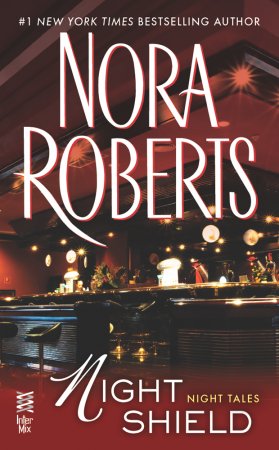 Night Shield
Night Shield Born in Shame
Born in Shame Secret Star
Secret Star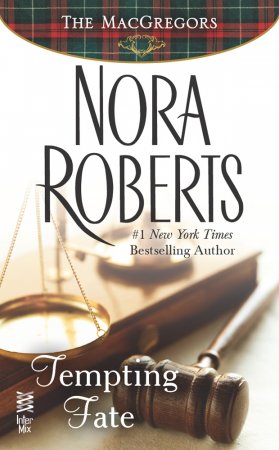 Tempting Fate
Tempting Fate Nightshade
Nightshade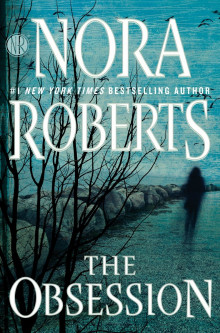 The Obsession
The Obsession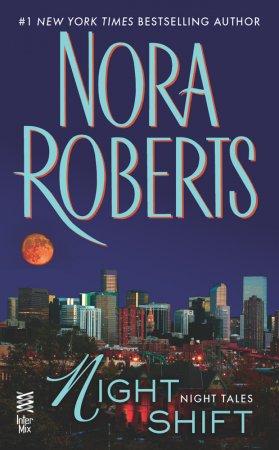 Night Shift
Night Shift Playing The Odds
Playing The Odds Tears of the Moon
Tears of the Moon One Man's Art
One Man's Art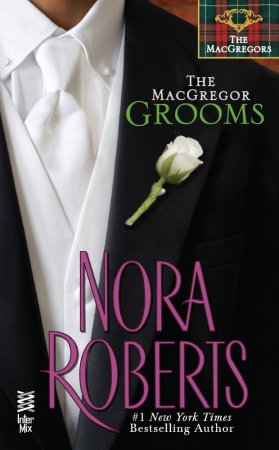 The MacGregor Groom
The MacGregor Groom Irish Rebel
Irish Rebel Morrigan's Cross
Morrigan's Cross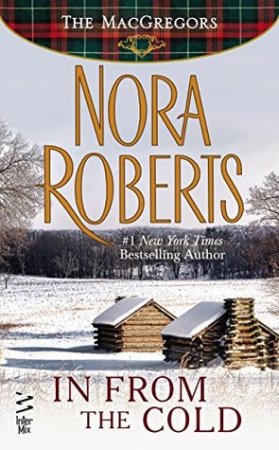 In From The Cold
In From The Cold Night Smoke
Night Smoke Finding the Dream
Finding the Dream Red Lily
Red Lily The Liar
The Liar Montana Sky
Montana Sky Heart of the Sea
Heart of the Sea All The Possibilities
All The Possibilities Opposites Attract
Opposites Attract Captive Star
Captive Star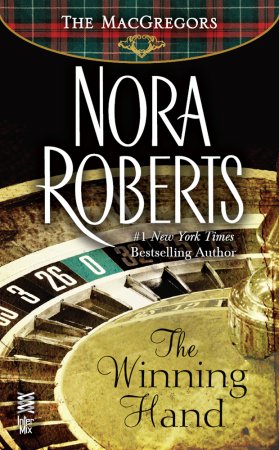 The Winning Hand
The Winning Hand Key of Valor
Key of Valor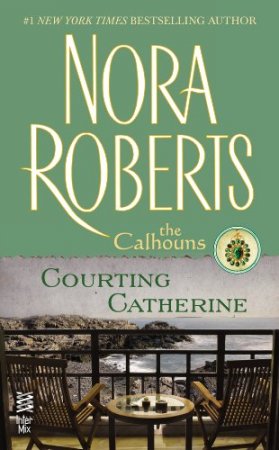 Courting Catherine
Courting Catherine Heaven and Earth
Heaven and Earth Face the Fire
Face the Fire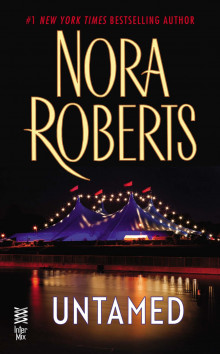 Untamed
Untamed Skin Deep
Skin Deep Enchanted
Enchanted Song of the West
Song of the West Suzanna's Surrender
Suzanna's Surrender Entranced
Entranced Dance of the Gods
Dance of the Gods Key of Knowledge
Key of Knowledge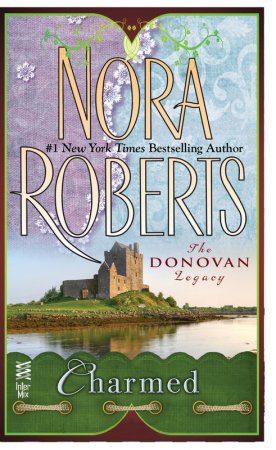 Charmed
Charmed For Now, Forever
For Now, Forever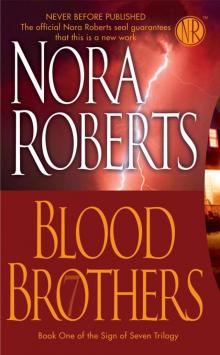 Blood Brothers
Blood Brothers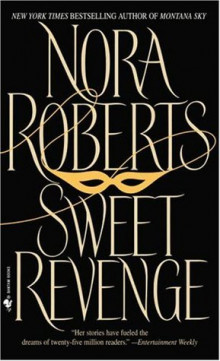 Sweet Revenge
Sweet Revenge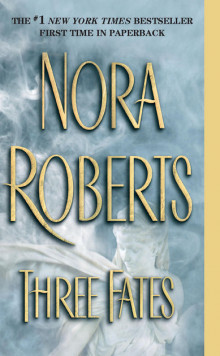 Three Fates
Three Fates Mind Over Matter
Mind Over Matter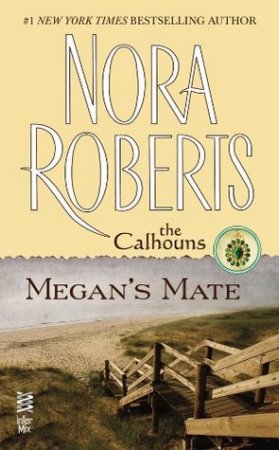 Megan's Mate
Megan's Mate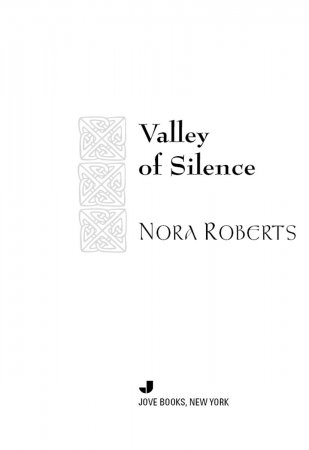 Valley of Silence
Valley of Silence Without A Trace
Without A Trace The Law is a Lady
The Law is a Lady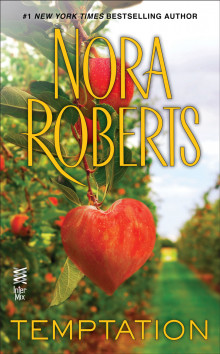 Temptation
Temptation Dance to the Piper
Dance to the Piper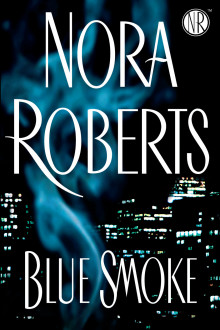 Blue Smoke
Blue Smoke Black Hills
Black Hills The Heart's Victory
The Heart's Victory Sullivan's Woman
Sullivan's Woman Genuine Lies
Genuine Lies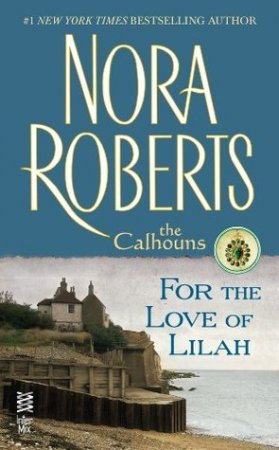 For the Love of Lilah
For the Love of Lilah Gabriel's Angel
Gabriel's Angel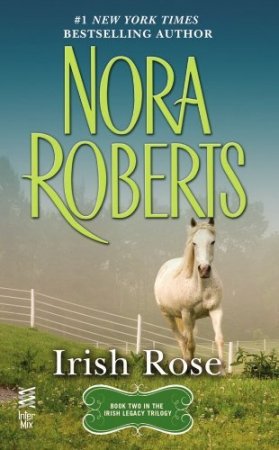 Irish Rose
Irish Rose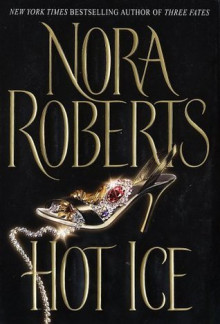 Hot Ice
Hot Ice Dual Image
Dual Image Lawless
Lawless Catch My Heart
Catch My Heart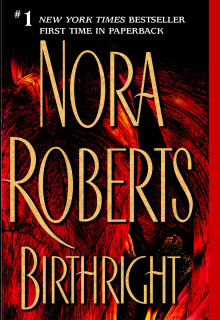 Birthright
Birthright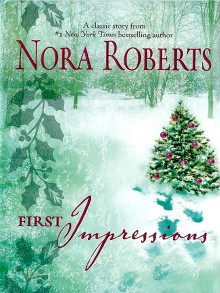 First Impressions
First Impressions Chasing Fire
Chasing Fire Carnal Innocence
Carnal Innocence Best Laid Plans
Best Laid Plans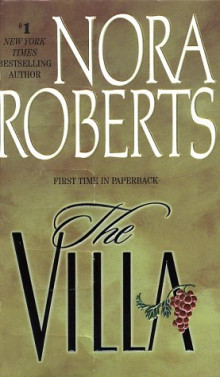 The Villa
The Villa Northern Lights
Northern Lights Local Hero
Local Hero Island of Flowers
Island of Flowers The Welcoming
The Welcoming All I Want for Christmas
All I Want for Christmas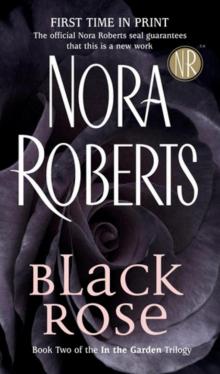 Black Rose
Black Rose Hot Rocks
Hot Rocks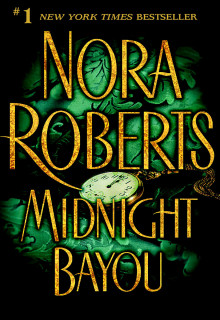 Midnight Bayou
Midnight Bayou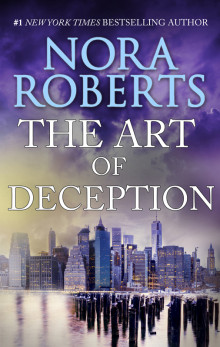 The Art of Deception
The Art of Deception From This Day
From This Day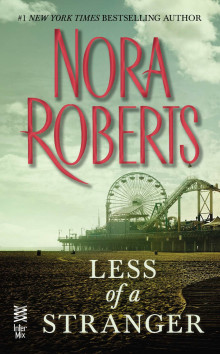 Less of a Stranger
Less of a Stranger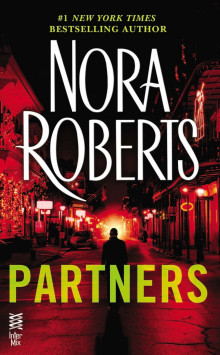 Partners
Partners Storm Warning
Storm Warning Once More With Feeling
Once More With Feeling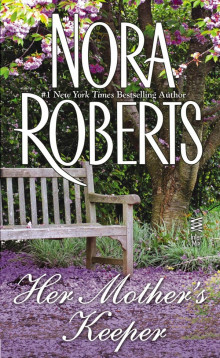 Her Mother's Keeper
Her Mother's Keeper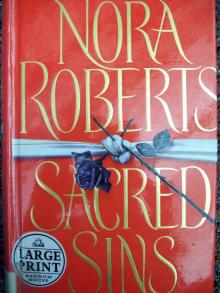 Sacred Sins
Sacred Sins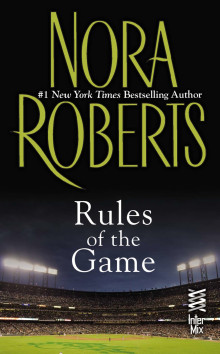 Rules of the Game
Rules of the Game Sanctuary
Sanctuary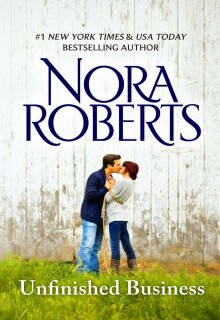 Unfinished Business
Unfinished Business Cordina's Royal Family Collection
Cordina's Royal Family Collection Dangerous Embrace
Dangerous Embrace One Summer
One Summer The Best Mistake
The Best Mistake Boundary Lines
Boundary Lines Under Currents
Under Currents The Stanislaski Series Collection, Volume 1
The Stanislaski Series Collection, Volume 1 The Rise of Magicks
The Rise of Magicks The Rise of Magicks (Chronicles of The One)
The Rise of Magicks (Chronicles of The One) The Awakening: The Dragon Heart Legacy Book 1
The Awakening: The Dragon Heart Legacy Book 1 Dance of Dreams
Dance of Dreams Skin Deep: The O'Hurleys
Skin Deep: The O'Hurleys The Quinn Legacy: Inner Harbor ; Chesapeake Blue
The Quinn Legacy: Inner Harbor ; Chesapeake Blue![[Chronicles of the One 03.0] The Rise of Magicks Read online](http://i1.bookreadfree.com/11/chronicles_of_the_one_03_0_the_rise_of_magicks_preview.jpg) [Chronicles of the One 03.0] The Rise of Magicks
[Chronicles of the One 03.0] The Rise of Magicks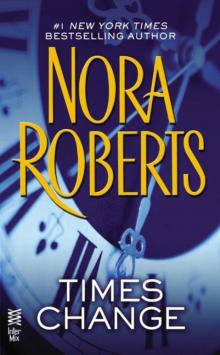 Times Change
Times Change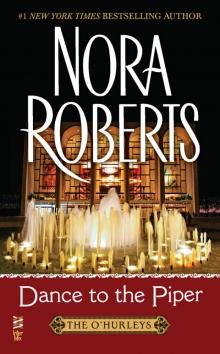 Dance to the Piper: The O'Hurleys
Dance to the Piper: The O'Hurleys Christmas In the Snow: Taming Natasha / Considering Kate
Christmas In the Snow: Taming Natasha / Considering Kate Waiting for Nick
Waiting for Nick Summer Desserts
Summer Desserts Dream 2 - Holding the Dream
Dream 2 - Holding the Dream The Novels of Nora Roberts, Volume 2
The Novels of Nora Roberts, Volume 2 In the Garden Trilogy
In the Garden Trilogy Eight Classic Nora Roberts Romantic Suspense Novels
Eight Classic Nora Roberts Romantic Suspense Novels Best Laid Plans jh-2
Best Laid Plans jh-2 From the Heart
From the Heart Holiday Wishes
Holiday Wishes Dream 1 - Daring to Dream
Dream 1 - Daring to Dream Second Nature
Second Nature Summer Pleasures
Summer Pleasures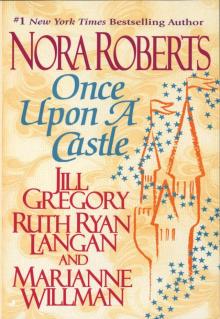 Once Upon a Castle
Once Upon a Castle Stars of Mithra Box Set: Captive StarHidden StarSecret Star
Stars of Mithra Box Set: Captive StarHidden StarSecret Star Impulse
Impulse The Irish Trilogy by Nora Roberts
The Irish Trilogy by Nora Roberts The Pride Of Jared Mackade tmb-2
The Pride Of Jared Mackade tmb-2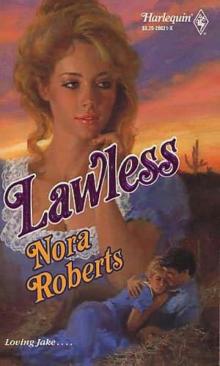 Lawless jh-3
Lawless jh-3 Taming Natasha
Taming Natasha Endless Summer
Endless Summer Bride Quartet Collection
Bride Quartet Collection Happy Ever After tbq-4
Happy Ever After tbq-4 Heart Of The Sea goa-3
Heart Of The Sea goa-3 Search for Love
Search for Love Once upon a Dream
Once upon a Dream Once Upon a Star
Once Upon a Star Dream Trilogy
Dream Trilogy Risky Business
Risky Business The Novels of Nora Roberts, Volume 3
The Novels of Nora Roberts, Volume 3 Dream 3 - Finding the Dream
Dream 3 - Finding the Dream Promises in Death id-34
Promises in Death id-34 The Novels of Nora Roberts, Volume 4
The Novels of Nora Roberts, Volume 4 The Perfect Hope ib-3
The Perfect Hope ib-3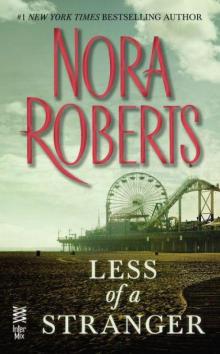 Less than a Stranger
Less than a Stranger Savour the Moment: Now the Big Day Has Finally Arrived, It's Time To...
Savour the Moment: Now the Big Day Has Finally Arrived, It's Time To... Convincing Alex
Convincing Alex Bed of Roses tbq-2
Bed of Roses tbq-2 Savour the Moment tbq-3
Savour the Moment tbq-3 Lessons Learned
Lessons Learned Key Of Valor k-3
Key Of Valor k-3 Red lily gt-3
Red lily gt-3 Savor the Moment
Savor the Moment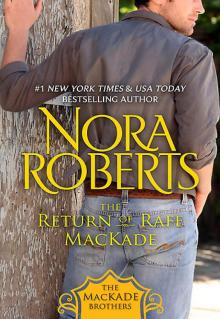 The Return Of Rafe Mackade tmb-1
The Return Of Rafe Mackade tmb-1 For The Love Of Lilah tcw-3
For The Love Of Lilah tcw-3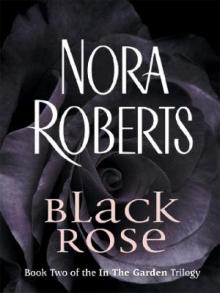 Black Rose gt-2
Black Rose gt-2 Novels: The Law is a Lady
Novels: The Law is a Lady Chesapeake Bay Saga 1-4
Chesapeake Bay Saga 1-4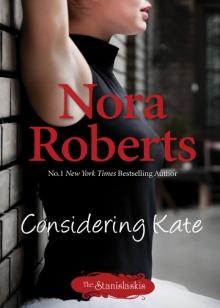 Considering Kate
Considering Kate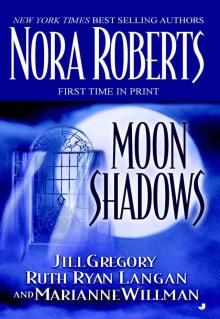 Moon Shadows
Moon Shadows Key of Knowledge k-2
Key of Knowledge k-2 The Sign of Seven Trilogy
The Sign of Seven Trilogy Once Upon a Kiss
Once Upon a Kiss The Novels of Nora Roberts, Volume 5
The Novels of Nora Roberts, Volume 5 Suzanna's Surrender tcw-4
Suzanna's Surrender tcw-4 The Quinn Brothers
The Quinn Brothers Falling for Rachel
Falling for Rachel Brazen Virtue
Brazen Virtue Time Was
Time Was The Gallaghers of Ardmore Trilogy
The Gallaghers of Ardmore Trilogy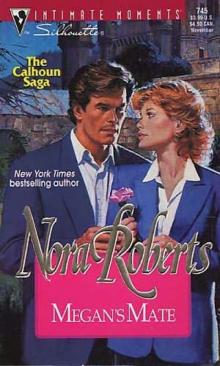 Megan's Mate tcw-5
Megan's Mate tcw-5 Loving Jack jh-1
Loving Jack jh-1 Rebellion & In From The Cold
Rebellion & In From The Cold Blue Dahlia gt-1
Blue Dahlia gt-1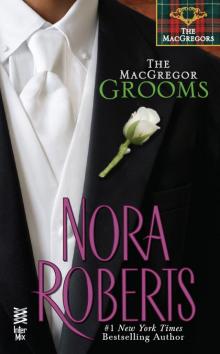 The MacGregor Grooms
The MacGregor Grooms The Next Always tibt-1
The Next Always tibt-1 The Heart Of Devin Mackade tmb-3
The Heart Of Devin Mackade tmb-3 The Novels of Nora Roberts Volume 1
The Novels of Nora Roberts Volume 1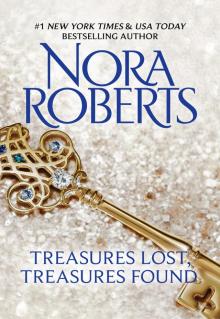 Treasures Lost, Treasures Found
Treasures Lost, Treasures Found Nora Roberts's Circle Trilogy
Nora Roberts's Circle Trilogy The Key Trilogy
The Key Trilogy The Fall Of Shane Mackade tmb-4
The Fall Of Shane Mackade tmb-4 A Will And A Way
A Will And A Way Jewels of the Sun goa-1
Jewels of the Sun goa-1 Luring a Lady
Luring a Lady